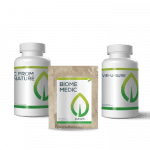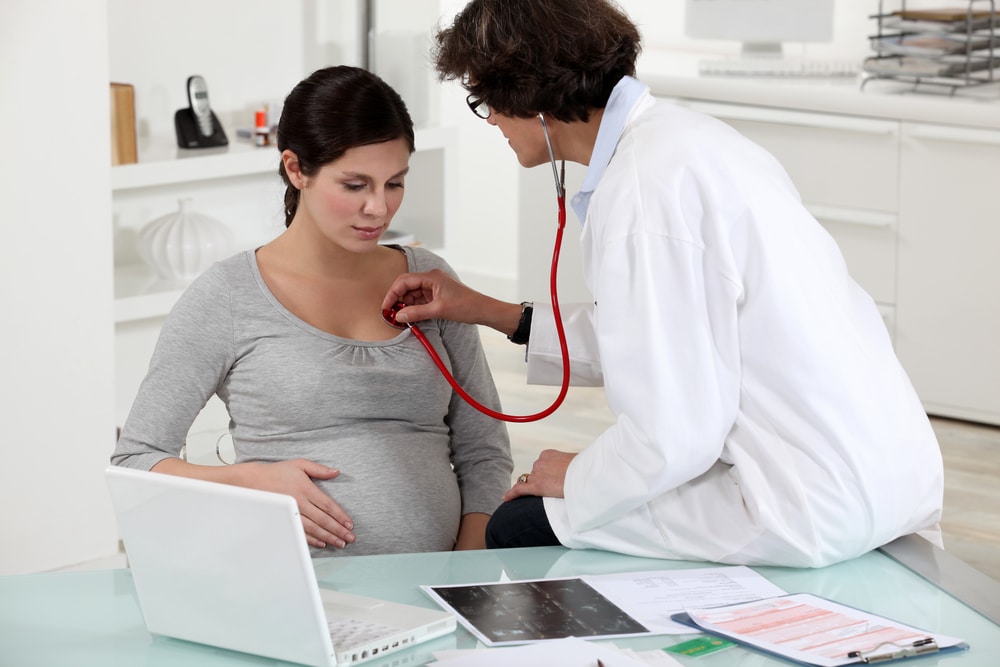After giving birth besides now taking care of a tiny life there are lots of changes that can happen to your body. One of those can even be new allergies or intolerances. Meaning that by giving birth your body may not handle food as easily as it did before. These allergies happen when your immune system has been compromised postpartum. The cause could also be that your immune system is out of balance. With so much of the immune system found in the stomach, this is what leads to food intolerances or allergies. Some of these allergies and intolerances can clear up on their own after a few months, though sometimes they can hang around for a long time.Â
Symptoms
Food intolerances don’t necessarily have to just have stomach symptoms. Though usually you can experience nausea, diarrhea, constipation, stomach cramps, bloating, gas, or vomiting. Food intolerances can actually cause headaches, dizziness, fatigue, and skin rashes. You may respond differently depending on the foods you are intolerant to. If you are lactose intolerant it can even be the cause of the long lasting pelvic pain after delivery. Joint pain can also be a symptom of food intolerances. Food intolerances can also cause a fever. Â
Immune System & Intolerances
Sometimes with the help of probiotics to help balance out your immune system you can adjust your body to not reacting to these allergens or foods negatively. Many people who have found out they have an unbalanced immune system look into going to a naturopath, who can help them naturally get their immune system back on track.Â
Though sometimes when you find you are now gluten or dairy sensitive, changing your diet can help alleviate these symptoms as well. Speaking with a nutritionist can help you learn how to become gluten free and dairy free if needed. The market is much more easily navigated when doing a gluten and dairy free diet. There are so many different choices, that you no longer have to go without if you find you are gluten or dairy intolerant.Â
Make sure when doing your research you see there is a difference between being dairy intolerant, and lactose intolerant. Lactose intolerance means your body doesn’t have enough lactase to digest the lactose in the foods. Meaning you just need to find foods that don’t have lactose in them and you should be fine eating other dairy products that don’t have the lactose to begin with. Dairy intolerant is when all dairy products such as cheese, yogurts, milk, and cream. Â
Usually if you become gluten intolerant or lactose intolerant postpartum, the likelihood of you having these beforehand are high. You probably had some sort of intolerances to either of these things before giving birth. Symptoms can become more extreme though or more prevalent after birth causing you to be more aware of the intolerances. This goes the same with other food allergies that you discover postpartum. Chances are you had some reaction to these foods, but your immune system could fight down the reaction. Â
It can be difficult to pinpoint what is causing your symptoms if you are experiencing postpartum allergies. Especially if you have never experienced an allergy or food intolerance before. Symptoms with both of these things can be vast and not all appear at once. Pregnancy is a traumatic, though lovely, thing that happens to your body. All kinds of changes can occur to your body after pregnancy. None of these allergies are life threatening, though for some time before you get a handle on them, it can affect your quality of life for sure.Â
Pin-Pointing The Cause Of Digestive DistressÂ
Narrowing down what is causing your symptoms can be a hard thing to do. If you feel you have a food sensitivity, going on an elimination diet can be a good place to start. Or keeping a food journal and writing down everything you eat and if it has a negative reaction on your body. Usually food sensitivity reactions will happen 30 minutes to 2 hours after you have eaten the food. Seasonal allergies should be easily identified depending on your symptoms as well. Once you have narrowed down the culprit you will be able to lay out a treatment plan to help combat your symptoms and get your quality of life back. Â
Not all postpartum allergies or intolerances hang around very long. Some may clear up in a few months, though some food intolerances could be here to stay. Try getting your immune system back up and rebalanced to help your body be able to fight off these pesky allergens. Looking into taking some good probiotics can help balance your immune system in your stomach to help your body be able to handle all types of foods appropriately. Keeping track of foods, and symptoms can help you identify what is causing your reactions so that you can get back to the best quality of life you can have.Â
READ MORE: 8 Most Common Food Allergies
Digestion a train wreck after pregnancy? It is a real thing: Postpartum Food Intolerances #HealthStatus
Sources:
https://dailymom.com/shine/handle-postpartum-food-allergies-2/
https://pubmed.ncbi.nlm.nih.gov/17851802/
https://www.healthymummy.com/body-changes-after-having-a-baby/
https://globalnews.ca/news/3923172/allergies-after-pregnancy/
https://www.hopkinsmedicine.org/health/wellness-and-prevention/milk-allergy-diet









Reply